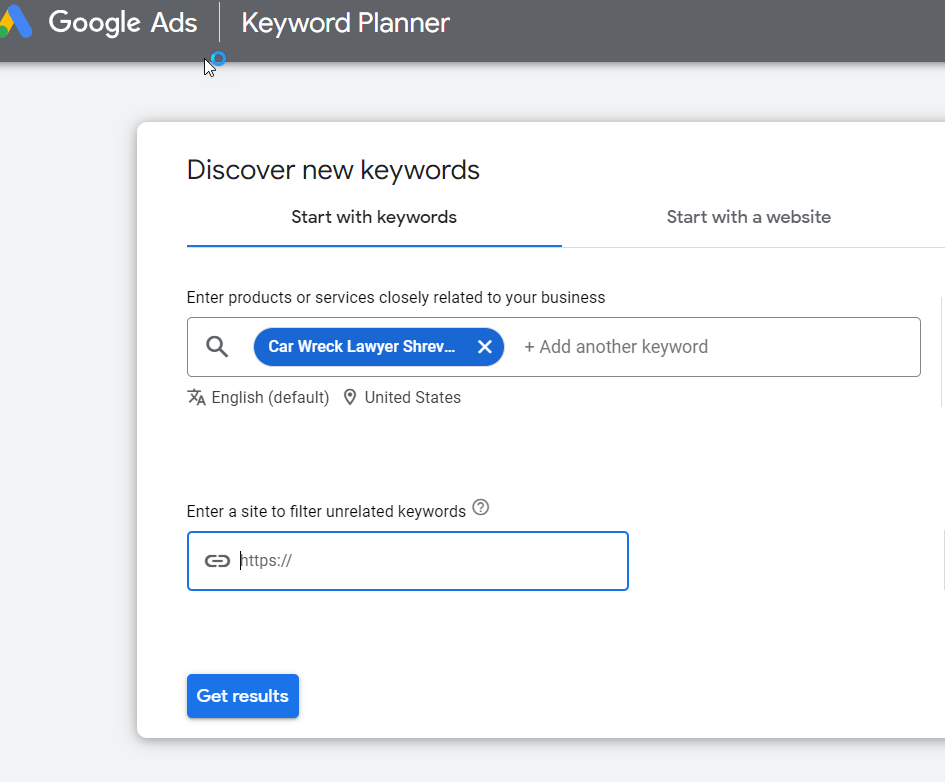Unleashing SEO’s Impact in Lawyer Marketing
In today’s digital age, the success of any business heavily relies on visibility and online presence. This reality holds true for law firms as well. Lawyers are exploring new and innovative ways to establish their brand and attract clients as the legal industry becomes increasingly competitive.
After working for a corporate marketing company for six years, I have acquired valuable insights into the trade. Specifically, my focus was on marketing for law firms, which allowed me to identify the shortcomings of larger competitors in terms of SEO. In this blog, I aim to demonstrate effective strategies that can significantly enhance your website rankings in a time-efficient and cost-effective manner. By implementing the techniques I will outline, you can swiftly elevate your website’s success while optimizing your budget.
Essential SEO Strategies for Legal Professionals
SEO, or Search Engine Optimization, is a strategic approach that helps websites rank higher in search engine results. Implementing an effective SEO strategy for lawyers can significantly boost their online visibility and attract potential clients actively searching for legal services. Search Engine Optimization is crucial for law firms because it helps improve their online visibility and increases their chances of being found by potential clients. By optimizing your website for search engines, you can attract highly targeted traffic and generate more leads. Additionally, SEO allows you to establish your law firm as a trusted and authoritative source in your area of expertise. To unlock the power of SEO for your law firm, you need to understand the key strategies and techniques that can significantly impact your online presence and client acquisition efforts. Let’s dive into some of these strategies in the following sections.
Mastering Keyword Research for Legal Websites
Keywords are the foundation of any successful SEO campaign. They are the words and phrases that potential clients use when searching for legal services online. By identifying and targeting the right keywords, you can ensure that your law firm’s website appears in relevant search results.
 To conduct keyword research for legal websites, brainstorm a list of terms relevant to your practice areas. Think about the specific legal services you offer and the problems your potential clients are trying to solve. These can include general keywords such as “personal injury lawyer” or more specific keywords like “divorce attorney in [city].” Once you have a list of keywords, you can use keyword research tools like Google Keyword Planner or SEMrush to analyze their search volume and competition level.
To conduct keyword research for legal websites, brainstorm a list of terms relevant to your practice areas. Think about the specific legal services you offer and the problems your potential clients are trying to solve. These can include general keywords such as “personal injury lawyer” or more specific keywords like “divorce attorney in [city].” Once you have a list of keywords, you can use keyword research tools like Google Keyword Planner or SEMrush to analyze their search volume and competition level.
When selecting keywords, it’s important to balance relevance and competitiveness. Choose keywords that have a decent search volume but aren’t overly competitive. Long-tail keywords, which are longer and more specific phrases, can also be a valuable addition to your keyword strategy. For example, How long can you wait to file a claim after a car accident?
Once you have a list of target keywords, incorporate them strategically into your website’s content, including your page titles, headings, meta descriptions, and body text. However, it’s important to avoid keyword stuffing, as search engines may penalize websites that engage in this practice. Focus on creating high-quality, informative content that naturally includes your target keywords. Google Prioritizes content that has user intent. You can create this by developing content around some of the most commonly asked questions you hear in your office. Just be sure not to give away legal advice within your content.
Optimizing On-Page Techniques for Law Firms
On-page optimization refers to optimizing individual web pages to improve search engine rankings and attract organic traffic. Technical SEO involves optimizing your website’s structure and backend elements to improve its visibility to search engines. Implementing schema markup, optimizing XML sitemaps, and improving website speed are essential technical SEO practices that can enhance your website’s performance in search engine rankings. When optimizing your law firm’s website, consider the following techniques:
- Optimize your page titles and meta descriptions:-
 Page titles and meta descriptions are the first things users see in search engine results. Ensure they accurately describe your page’s content and include relevant keywords.
Page titles and meta descriptions are the first things users see in search engine results. Ensure they accurately describe your page’s content and include relevant keywords. - Create high-quality, informative content- content is king in the SEO world. Create well-written, informative articles, blog posts, and practice area pages that provide value to your target audience. Incorporate your target keywords naturally into your content.Content creation is essential for engaging your audience and establishing your expertise. Creating engaging blog posts, informative guides, and case studies can provide valuable insights to your potential clients. By addressing common legal questions or concerns, you can position your law firm as a helpful resource and attract organic traffic to your website.
- Use descriptive URLs- Use descriptive URLs that include relevant keywords and accurately describe the content on your pages.
- Optimize your images- Optimize your images by using descriptive filenames and alt tags that include relevant keywords.
- Improve your website’s loading speed- A slow-loading website can negatively impact user experience and search engine rankings. Optimize your website’s loading speed by compressing images, minimizing code, and using caching techniques. Your goal mobile speed should be 2.5 seconds or less. Test yours now
By implementing these on-page optimization techniques, you can improve your law firm’s website’s visibility in search engine results and attract more organic traffic.
Effective Off-Page SEO Tactics for Lawyers
Off-page SEO refers to the actions taken outside of your website to improve its search engine rankings. While on-page optimization focuses on optimizing your website’s content and structure, off-page SEO involves building your website’s authority and reputation through external factors. Here are some off-page SEO tactics that can benefit lawyers:
Harnessing Local SEO for Law Firms
For law firms that primarily serve clients in specific geographical locations, local SEO is crucial for attracting local clients and establishing a strong online presence in your target area. Local SEO involves optimizing your website and online profiles to rank higher in local search results. Expanding your local SEO efforts can help you attract clients in your target geographic area. Creating geo-targeted content, participating in local events, and obtaining local citations can improve your visibility in local search results and drive qualified leads to your website.
- Google My Business (GMB) profile-To optimize your law firm’s website for local SEO, start by creating a Google My Business (GMB) profile. GMB is a free tool that allows you to manage your law firm’s online presence on Google, including your business information, reviews, and photos. Ensure your GMB profile is complete and accurate, including your business name, address, phone number, and website URL.
- Local Citations (NAP)- Besides optimizing your website, building citations for your law firm is important. Citations are online mentions of your law firm’s name, address, and phone number (NAP) on various websites, directories, and social media platforms. Consistency is vital in citations, so ensure that your NAP information is consistent across all online platforms and that you submit the information to the primary data aggregators. Check out our blog to learn more about NAP consistency. Test yours here
- Reviews- encourage satisfied clients to leave reviews on your GMB profile and other relevant review platforms. Positive reviews improve your law firm’s reputation and play a role in local search rankings. Have a system for asking for these reviews and where you want them to go in order to leave them. Displaying client testimonials and success stories on your website can help build trust and credibility with potential clients. Sharing real-life examples of your firm’s successful cases and satisfied clients can reassure visitors of your expertise and encourage them to choose your firm for their legal needs.
- Posting- Be sure to stay active on your GMB profile with posts so your potential clients can quickly see if they found the right firm to do business with.
By implementing these local SEO strategies, law firms can increase their visibility in local search results, attract local clients, and establish a solid online presence in their target area.
Strategic Link Building for Law Firms
One of the most effective off-page SEO tactics is link building. Link building involves acquiring backlinks from other reputable websites to your law firm’s website. Backlinks act as “votes of confidence” from other websites, signaling to search engines that your website is trustworthy and authoritative.
To build high-quality backlinks, start by creating valuable and shareable content on your website. This can include blog articles, informative guides, or case studies that provide valuable insights to your target audience. As you create quality content, other websites are more likely to link back to your website as a source of information.
Additionally, consider contacting other relevant websites in the legal industry and offer to contribute guest articles or collaborate on content. This not only helps you build backlinks but also increases your brand visibility and establishes you as an authority in your practice area.
Conclusion
In the highly competitive legal landscape, SEO marketing can be a game-changer for lawyers looking to establish their brand, attract clients, and unlock success. By implementing effective SEO strategies, conducting keyword research, optimizing your website’s content and structure, and leveraging off-page SEO tactics, you can improve your law firm’s online visibility and attract highly targeted traffic.
Remember, SEO is a long-term strategy that requires continuous effort and adaptation. Stay current with the latest SEO trends and algorithm changes, and regularly evaluate and refine your SEO strategy based on your results. With dedication and perseverance, you can position your law firm for long-term success in the digital realm.


